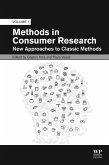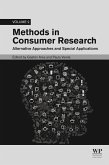The text covers the basis of neural mechanisms of affective phenomena, as well as representative approaches to Affective Computing, Kansei Engineering, Hedonomics, and Emotional Design. The methodologies section includes affect induction techniques, measurement techniques, detection and recognition techniques, and regulation models and strategies. The application chapters discuss various H/F and HCI domains: product design, human-robot interaction, behavioral health and game design, and transportation. Engineers and designers can learn and apply psychological theories and mechanisms to account for their affect-related research and can develop their own domain-specific theory. The approach outlined in this handbook works to close the existing gap between the traditional affect research and the emerging field of affective design and affective computing.
- Provides a theoretical background of affective sciences
- Demonstrates diverse affect induction methods in actual research settings
- Describes sensing technologies, such as brain-computer interfaces, facial expression detection, and more
- Covers emotion modeling and its application to regulation processes
- Includes case studies and applied examples in a variety of H/F and HCI application areas
- Addresses emerging interdisciplinary areas including Positive Technology, Subliminal Perception, Physiological Computing, and Aesthetic Computing
Dieser Download kann aus rechtlichen Gründen nur mit Rechnungsadresse in A, B, BG, CY, CZ, D, DK, EW, E, FIN, F, GR, HR, H, IRL, I, LT, L, LR, M, NL, PL, P, R, S, SLO, SK ausgeliefert werden.









